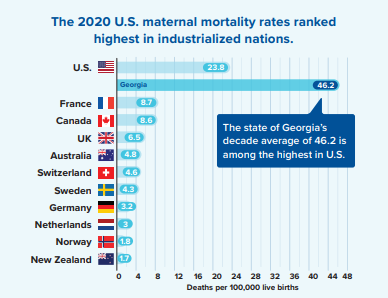Supplemental benefits administrator Avesis and Elevance Health subsidiary Amerigroup Georgia have teamed up with Uber Health in a pilot project to tackle the state's maternal health crisis.
Utilizing community health partners like the Georgia Primary Care Association and federally qualified health centers (FQHCs), hundreds of Amerigroup's Medicaid members in December 2022 started receiving two individualized nutritional counseling sessions, a scale and $300 of Uber Eats vouchers.
Though the program's results have not been shared yet, Avesis Senior Manager of Care Transformation Don Trainor said the program has had promising results so far.

Of the 745 referrals from FQHCs, approximately 85% of individuals have chosen to participate in the program and 66% have been referred to primary care physicians. Internal social determinants of health screenings reveal that less than 25% of the participants say transportation is a barrier to care, but more than 50% say food insecurity is a major concern.
"If you're having difficulty figuring out where your next meal is going to come from, it's going to be challenging for you to be able to prioritize accessing primary care services, nutritional counseling or some of these other recommendations for pregnant women," said Trainor, head of the pilot program.
The U.S. Preventive Services Task Force recommends pregnant women receive a nutritional counseling session before pregnancy and one postpartum. But he said weight gain monitoring is an area easily overlooked.
Maternal mortality rates have doubled in the U.S. since 2018. In 2021, the maternal mortality rate was 32 deaths per 100,000 live births. That number jumps to 69 deaths for Black women.
The country's data surrounding the maternal health crisis were called into question last month when a new study said death rates released by the Centers for Disease Control and Prevention (CDC) inflated and miscounted deaths. It argues the maternal death rate should be lower, though the CDC and the American College of Obstetricians and Gynecologists refutes these claims, ProPublica reported.
“The reality is that mortality rates are a very narrow representation of the maternal health crisis in the US—they simply do not reflect the severity of the problem," said Anu Sharma, founder and CEO of Millie, a maternity clinic, in a statement shared with Fierce Healthcare. "Regardless of whether or not this specific data has been miscalculated, we undoubtedly have high rates of maternal morbidity, with nearly 50,000 near misses a year, as well as high rates of c-sections, preterm births, NICU stays, and poor maternal mental health."
Regardless, Georgia is considered one of the epicenters of this crisis. Its mortality rate is seventh highest among all states, KFF reports. And the Center For Reproductive Rights found that Black women in the state are three times more likely (PDF) to die from complications than white women.
Georgia is also home to the country's highest preterm birth rate and infant mortality rate, Trainor said.
A survey by Emory Health showed that substance use disorders and lack of insurance were the top two perceived factors to increase maternal mortality, and 82% of respondents believe the state should be investing in maternal mortality initiatives.
In the pilot program, participants span more than 200 ZIP codes. Some members live in food deserts, but most are eligible for the Georgia Special Supplemental Nutrition Program for Women, Infants, and Children, which provides food benefits to those who meet the income eligibility requirement. Oftentimes, people don't realize these benefits are available.
Uber and Elevance Health have pledged to share the results of the pilot program with the White House.